Indianz.Com Video: 11th Circuit Court of Appeals – Muscogee (Creek) Nation v. Poarch Band of Creek Indians – September 25, 2024
A federal appeals court has revived a long-simmering dispute between two tribal nations but both parties remain far apart on what the decision means for a sacred Creek site in Alabama.
On October 11, a three-judge panel of the 11th Circuit Court of Appeals ordered another look at a lawsuit filed by the Muscogee (Creek) Nation over Hickory Ground, a historic town that once served as the tribal capital.
The decision came barely two weeks after arguments in the closely-watched case drew a big crowd to Atlanta, Georgia.
But while the 21-page ruling does not address what happens at Hickory Ground, the fact that the appeals court has kept the case alive is being viewed as a major win by the Muscogee Nation. Tribal leaders and citizens held a vigil the night before the hearing and a march through downtown Atlanta on the morning of the arguments, following an 800-mile plus, multi-state Journey for Justice from their headquarters in Oklahoma.
“This is a monumental victory for our nation and for tribal sovereignty as a whole,” Principal Chief David Hill said on the day of the decision. “The Eleventh Circuit’s decision reaffirms our nation’s sacred and historical ties to Hickory Ground, while also affirming our sovereign right to seek justice against federal agencies and other entities that violated the laws protecting this sacred land.”
“This ruling supports and strengthens the sovereignty of tribal nations by holding that our rights and protections must be respected and upheld under federal law,” added Hill, who was among the Muscogee citizens who attended the packed hearing on September 25. “We are grateful that the court approached this case with the respect and integrity befitting the sanctity of Hickory Ground.”
Journey for Justice: Leaders and citizens of the Muscogee (Creek) Nation stand outside the Elbert P. Tuttle Courthouse in Atlanta, Georgia, on September 24, 2024. Photo: Muscogee (Creek) Nation
The Poarch Band of Creek Indians, however, is taking a different view of a dispute that goes back more than 40 years. The Alabama-based tribe has controlled Hickory Ground since purchasing it in 1980, later having the land placed in trust before opening a gaming facility and hotel there in 2014.
The development of Hickory Ground, along with the reburial of ancestral remains found there, led the Muscogee Nation to go to court. Yet more than a decade later, the case remains unresolved — with the Poarch Creeks accusing their sister tribe of pursuing a “nuisance lawsuit” and spreading misinformation about the sacred site.
“Once again, our tribe is faced with the task of correcting blatant misrepresentations put forth by the Muscogee Nation,” Poarch Band Chair and Chief Executive Officer Stephanie A. Bryan said on Tuesday. “It is a sad truth that the Muscogee have knowingly promoted a false narrative about our tribe and our land for many years.”
“But it is shocking that their false narrative now extends to actions taken by the 11th Circuit Court of Appeals which is clearly a matter of public record,” Bryan said.
Poarch Band of Creek Indians Chair and Chief Executive Officer Stephanie A. Bryan, center, is seen following testimony to the House Subcommittee on Indian and Insular Affairs in Washington, D.C., on June 26, 2024. Photo by Indianz.Com (CC BY-NC-SA 4.0)
Caught somewhere in the cross-fire is the United States. Although the Poarch Band and the federal government won dismissal of the lawsuit at the federal court level, a disagreement arose as the case was being appealed to the 11th Circuit by the Muscogee Nation.
The Poarch Band has continued to assert sovereign immunity, arguing it cannot be sued without its consent. But the Department of Justice abandoned the tribe on that particular issue, both in briefs and at the hearing last month.
“You have no view on that?” inquired Chief Judge William H. Pryor Jr., the senior-most member of the appeals court who happens to be from Alabama.
“We take no view on that,” confirmed Arielle Jeffries, a government attorney.
“It’s telling to me that you don’t want to defend it,” Pryor responded.
Jeffries tried to characterize the matter as a procedural one and stuck to the argument that the Poarch Band did not need to be a part of the case because she said the federal government could adequately represent its interests. That appeared to raise concerns from another member of the court.
“That’s an existential question to them,” Judge Robert J. Luck said of the tribe’s sovereignty. “It might be to you a ‘meta’ question, but for them it’s very real.”
Indianz.Com Audio: 11th Circuit Court of Appeals – Muscogee (Creek) Nation v. Poarch Band of Creek Indians – September 25, 2024
In the end, the 11th Circuit’s decision did not answer whether individual officials of the Poarch Band can be sued by the Muscogee Nation. The court instead said the lawsuit must be re-examined “claim-by-claim” in order to determine how to proceed.
“Courts must consider sovereign immunity and any exceptions to it on a claim-by-claim and defendant-by-defendant basis,” Chief Judge Pryor wrote in the decision. He further wrote the Muscogee Nation must modify its complaint in order to make it more clear.
But to the Muscogee Nation, the ruling reaffirms the tribe’s connection to Hickory Ground. One of the plaintiffs in the case is George Thompson, the Mekko, or chief, of the town.
“We will not rest until all our ancestors, stored in plastic bins and boxes, are returned to us for reburial in accordance with Mvskoke law and tradition,” said Thompson, who attended the hearing last month.
For its part, the Poarch Band will continue defending its sovereignty. The tribe
plans to file another motion to dismiss once the case returns to the federal district court in Alabama, where it was initially filed in 2012.
“The legal action taken against Poarch is based on fiction, not facts,” the tribe said on Tuesday.
An aerial photo of the Wind Creek gaming facility and hotel in Wetumpka, Alabama, shows the location of the ceremonial grounds of the Hickory Ground in the center surrounded by trees in August 2024. Photo by Poarch Band of Creek Indians
Amid the dispute with the Muscogee Nation, the Poarch Band has stepped up efforts to address another outstanding issue. The tribe is lobbying for passage of the Poarch Band of Creek Indians Lands Act in order to confirm that land taken into trust on its behalf remains in trust. [H.R.6180 | S.3263]
In testimony to the House Subcommittee on Indian and Insular Affairs in June, Chair Bryan said challenges to the tribe’s trust lands have been costly and time-consuming.
She said the tribe has “spent more than $10 million” defending its rights in court.
“Thankfully, every court reviewing these frivolous cases against us has upheld the status of our lands, which the Interior Department placed in trust decades ago,” Bryan said on June 26.
Such lands include Hickory Ground, seemingly placing the historic town in danger of losing legal protections associated with tribal trust lands. But when a judge on the 11th Circuit inquired about the status of the site, the U.S. government attorney did not seem to want to directly answer the question.
“What is the government’s position as to whether this trust is any good on the land, this federal trust?” Judge Frank Hull asked at the court hearing last month.
“They weren’t a tribe in 1934,” Hull said, pointing to the tribe’s federal recognition in 1984. “They’re not a tribe under federal jurisdiction, and this trust, for sake of argument, seems totally invalid. What is the government’s position about that?”
“We haven’t briefed that yet,” Arielle Jeffries from the Department of Justice said.
An aerial photo dated August 2024 shows a 17-acre area of undeveloped land near the Wind Creek gaming facility and hotel in Wetumpka, Alabama. Photo by Poarch Band of Creek Indians
But the Poarch Band is not alone. Dozens of tribes that were not “under federal jurisdiction” at the time of the passage of the Indian Reorganization Act (IRA) in 1934 have also seen numerous challenges to their trust lands, costing U.S. taxpayers time and money when lawsuits are filed.
“As an enrolled member of the Chickasaw Nation of Oklahoma, I cannot overstate the importance of tribal sovereignty and the relationships that members of tribes have with their land, their identity and their culture,” Rep. Tom Cole (R-Oklahoma) said at the House hearing in June.
Cole, who supports passage of the Poarch Band of Creek Indians Lands Act, has introduced H.R.1208, which would amend the IRA and ensure that every federally recognized tribe can restore their homelands through the land-into-trust process. His bill is known as a Carcieri fix because it would finally resolve doubts created by U.S. Supreme Court’s decision in the Carcieri v. Salazar case.
“This decision created two different classes of Indian tribes — those that can have land in the trust and those who cannot,” Cole said of the ruling from February 2009. “This two-class system is detrimental to so many Native communities.”
Despite the pleas of the Poarch Band to “pass this bill this year,”
H.R.6180 has not advanced to a markup before the House Committee on Natural Resources, the legislative panel with jurisdiction over Indian issues.
Neither has H.R.1208, despite Cole’s powerful position as chair of the House Committee on Appropriations.
The Senate Committee on Indian Affairs took testimony on S.3263, the Poarch Band of Creek Indians Parity Act, on June 12. The bill has not been been advanced either.


